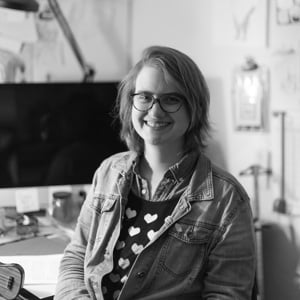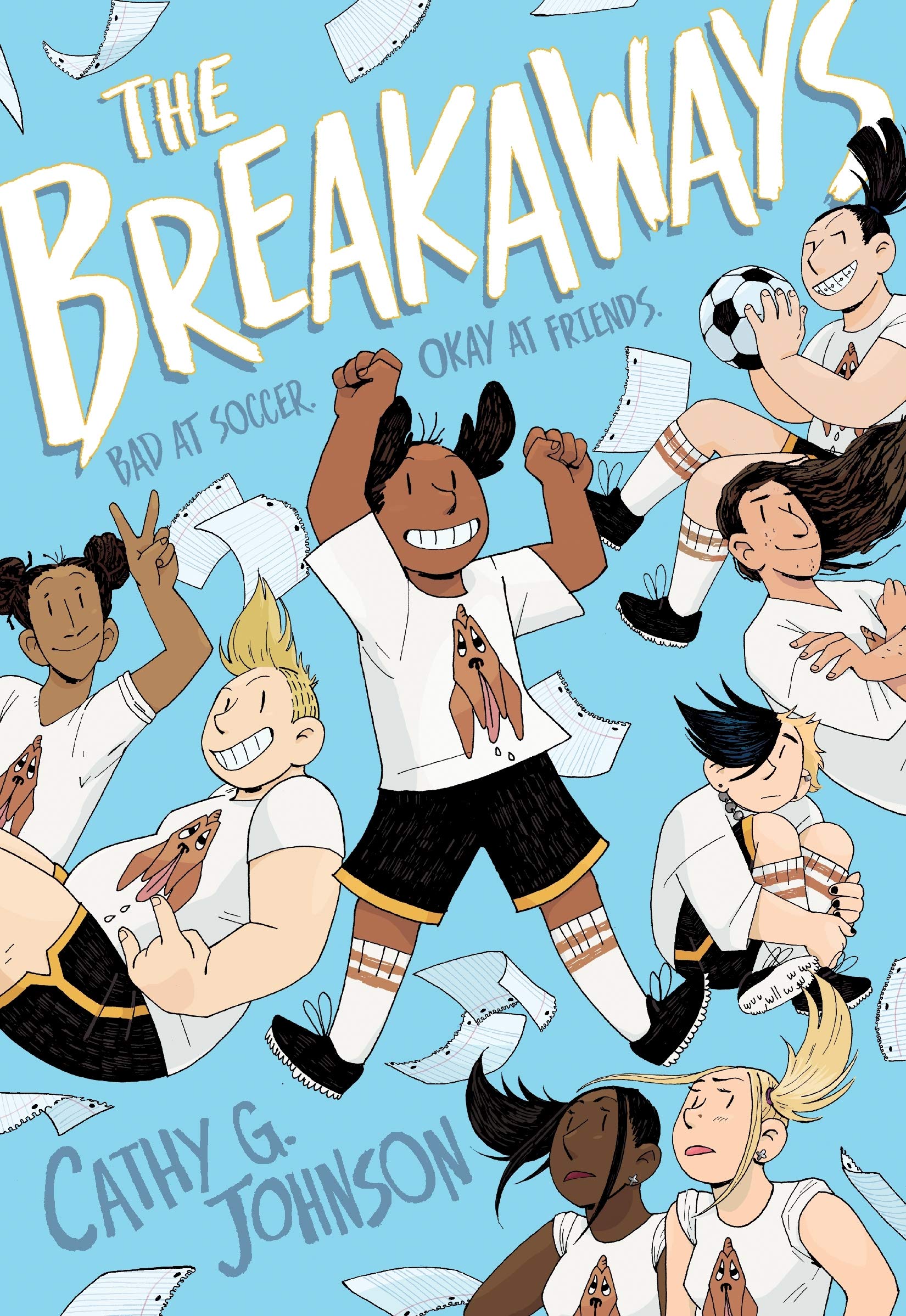You’ve been working on your comic for what probably seems like forever and finally, you feel that you are ready to share it with the world. Of course, you can always go the route of self-publishing, but that carries with it a number of obligations and expectations — printing, shipping, marketing — that you may not have the desire or the knowledge to take on. Thankfully, there are a number of amazing small press comics publishers who are constantly looking to expand their catalog and bring new voices into the world.
Unfortunately, though, as much as there are ethical publishers who want what’s best for the artists they publish, there are also bad actors who prey on the talents of young and new creators.
How do I move forward from an idea to a finished book? How should I approach the licensing of print and digital rights for my comics? Who owns the copyright for my work? How do royalties and advances work? There are a lot of questions about the publishing process, some of which are unique to comics, and some of which are standard areas of concern for working artists around the world.
Part of the goal of Fieldmouse Press, the nonprofit press that publishes SOLRAD, is to advance the comics arts. We see the continued social and economic success of cartoonists as integral to that goal. SOLRAD has devoted and will continue to devote resources to this area of focus.
To this end, we are running an ongoing feature at SOLRAD called KNOWING IS HALF THE BATTLE where we both feature an artist every week and ask for their advice about navigating the world of comics publishing, best practices for the business of comics, and other general advice.
For the initial interview series, Sarah Wray from Astra Editorial, who has worked with publishers such as Avery Hill, Liminal 11, and Breakdown Press, reached out to a number of cartoonists that she has worked with and provided them with the following prompting statements:
- The main thing(s) I expect from a comics publisher is/are…
- My #1 advice for submitting to agents and publishers…
- A sneaky red flag or shady thing I would warn new creators to look out for…
- I think it can be worth it to take a lower-paid illustration job in return for ___…
- If a publisher/offer seemed too good to be true, here’s how I’d check it out…
- An organization I’d go to for support if I needed advice or if something went wrong…
- My best tip for promoting your work online and at cons…
- To take care of your health / mental health as an artist, I recommend…
- I wish someone had told me ___ before I started working in the comics industry…
To add to the dialogue, we continue to reach out to cartoonists using this format. Today on The More You Know we’re featuring tips from Cathy G. Johnson.

Cathy G. Johnson is an illustrator, printmaker, and published cartoonist. Her third graphic novel, The Breakaways, came out from First Second in 2019! Learn more at TheBreakawaysComic.com! She has a new comic titled Black Hole Heart, self-published in 2020, out now! Johnson is also an art educator, regularly teaching workshops and classes throughout New England and North America. Learn more at her education site ComicArtEd.com!



CATHY G. JOHNSON
- The main thing(s) I expect from a comics publisher is / are…
Support. I want clear, prompt communication. I want reasonable deadlines that take into account my life, time, and work. I want good publicity that puts my book into the hands of readers. - My #1 advice for submitting to agents and publishers…
Get an agent, because they are on your side. Publishers can be your team, your collaborators, but they are also ultimately a business. Make sure you have an agent who puts you and your book first. - A sneaky red flag or shady thing I would warn new creators to look out for…
Get an agent or hire a lawyer to read your contract. Don’t try to do it on your own. - I think it can be worth it to take a lower-paid illustration / comics job in return for ___…
Good morals, ethics. and principles you believe in. I have a presentation that I give to college students — I purposely chose to pursue a career in education because I did not want to rely solely on art for my income. Relying on art would mean a compromise of my ethics. I have said no and will continue to say no to “opportunities” because they were for people or companies who I believed were morally reprehensible. I want to devote my life to building community and putting my energy into good and positive things for the world, and that can mean saying no to money. I would never, ever fault an artist for taking an art job that was ethically compromised, but this is a deliberate decision on my part to put myself in a good position to be able to say no. And so, sometimes the causes I believe in aren’t able to pay me a lot. And that’s okay, because I’ve structured my life so it’s okay. - If a publisher / offer seemed too good to be true, here’s how I’d check it out…
My agent, and talking to other authors who have worked with that publisher. - An organiszation I’d go to for support if I needed advice or if something went wrong…
My agent and friends. I’m sorry this is such a boring answer — but I got an agent specifically so I didn’t have to become an expert in the publishing world, that weight is taken off my shoulders. And by “friends,” I mean build your community. Get to know people. It’s really important, in comics, in art, in everything. - My best tip for promoting your work online and at cons…
Build yourself a proper professional online portfolio. Maybe you have 10k, 100k followers on Twitter, but the people who want to hire you aren’t all going to be on social media. Maybe they will discover you there, but they’ll all be going to your online portfolio. There isn’t the immediate positive response that makes you feel good like social media has, but it’s what you want for your career in the long haul. - To take care of your physical health / mental health as an artist, I recommend…
If you are having pain while drawing, go get a proper diagnosis. I was having a lot of thumb and wrist pain in my drawing hand while I was working on The Breakaways, and I’d try all the stretches, but it wasn’t working. I got diagnosed by a physical therapist that the thumb problem was actually stemming from my back and posture. Once I started working out my back, the thumb pain went away. I now go to the gym regularly for back exercises to strengthen it, and the pain is completely gone (currently put on hold for COVID, but once it’s safe, I’ll be back at the gym again). Don’t try to diagnose yourself, everyone’s body is different, go to a medical expert, it’s worth it, don’t put it off.
For mental health, I only recently got a therapist after quarantine, but I think mainly get to know yourself. I’m an extrovert, which means any time in my life when I was only an artist, I would get depressed. I always try to keep my teaching gigs going — I love teaching so much, I love getting to know people, visiting communities, and creating artwork with students. It’s the best part of my life. And it also fulfills me as an extrovert, so then I’m powered up for the times I’m alone in my studio and I can focus. So, get to know yourself, get to know your needs, and try to build your life in a way that fulfills those needs. And if you have to quarantine yourself and you’re an extrovert like me, get yourself a therapist to help you through it. Stay safe everyone. - I wish someone had told me ___ before I started working in the comics industry…
Don’t drink the pickle juice. This is a Nicki Minaj reference— https://youtu.be/qmj5uVbM-RA (with an old school 2012 reference to Donald Trump…) — about not accepting situations that don’t respect your worth. Because if you accept those situations and compromises, then you will continue to be undervalued. Have dignity and respect for yourself and your artwork. And if you can’t find the kind of situation that offers the dignity and respect you and your friends and peers deserve, get together and build it yourself. Demand it. You don’t need to drink the pickle juice.
SOLRAD is made possible by the generous donations of readers like you. Support our Patreon campaign, or make a tax-deductible donation to our publisher, Fieldmouse Press, today.

Leave a Reply